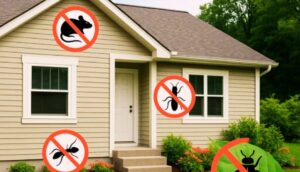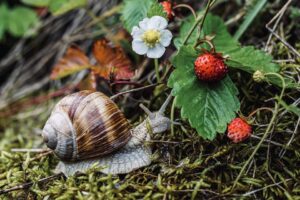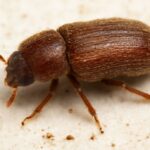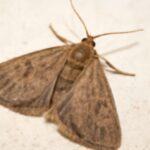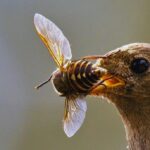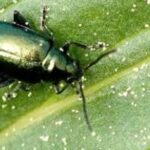Tips on How to Use Neem Oil in the Garden

Neem oils are very popular and are used in so many ways. These oils can be used for acne, skin and hair care, etc.… but what I love about the neem oils is that they can also be used in the garden. The oil type that is formulated for garden use has proven to be effective as many gardeners are having much success .
The challenge with many pesticides is they are not environmentally friendly or safe and can cause harm when coming in contact with humans and pets. But what I love about the neem oil is that it’s a gardener’s dream. These oils are environmentally friendly and can be applied to garden ornamental plants even edible gardens.
A little neem history
The neem tree hails from Indian and South Asia, the scientific name for this tree is called the Azadirachta Indica. The neem tree is also grown widely in Sir Lanka and Pakistan, this tree is famous for its medical uses and is dated back to over 4,000 Bc. It is recorded that the neem tree was first called “Sarav Roga Nivarini” which translates a tree that cures all sickness. As said earlier history shows us that this tree has been around for some time and has done a lot of good.
How does neem oil works?
Neem oils are classified as systemic. Once these oils are applied to the soil it is absorbed by the plant’s roots and is translocated throughout the entire plant’s vascular system, as the host insect feeds on the plant they ingest this oil. Once the oil is ingested the active ingredients go to work by causing the insect spiracles ( their breathing apparatus) to become clogged leading suffocation.
The treated insect may also stop feeding bringing on starvation, discourages the insects from mating, and affect or prevent the larva from maturing. When used as a foliar spray ( spraying the plant’s leaves ) neem oils are more effective on younger plants. Neem oils can take care of a range of garden insect pests, some of these pests include.
- Aphids
- Scales
- Mealybugs
- Thrips
- Whiteflies
- Spider Mites
When should neem oils be used?
Before using neem oil it is best to read and follow the manufacturer’s label. If applied incorrectly can cause damage to plant, it is always best to test this oil by applying it to a small lower section of your plant. Wait for about a day and check if your plant shows no sign of being damaged then go ahead and make a full application.
Before using ensure that your plants are not water-stressed ( lack of water ). If your plants are water-stress then give your plants a good drink of water and wait a day to ensure that your plants have recovered before applying. Don’t apply these oils if the temperature is too high during summertime. If treating plants in extreme heat this oil can become phototoxic causing the foliage or the leaves to burn. Neem oil should not be applied during cold weather either.
How should neem oil be applied?
When applying neem oil as a foliar spray apply, in the morning or the evening when the weather is cool, Adjust the spray nozzle so that the oil comes out fine and misty, coarse droppings will not be effective. Misting with fine droppings will ensure that the entire plant is covered. When spraying, total coverage of leaves both the top and the underside is important.
Beneficial Insects and neem oils
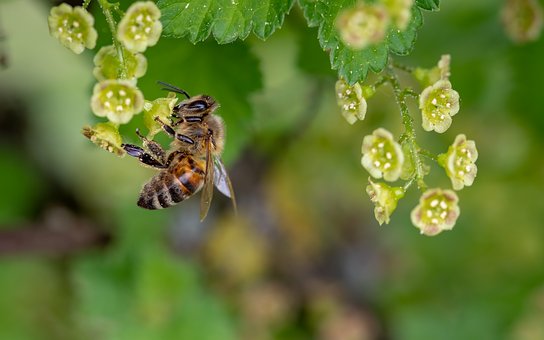
It is best to use neem oils when bees are not active which is in the morning or evening. Bees are beneficial insects and we should do all that we can to protect them.
Fungicide application
What I love about the neem oil is that it can be used as a fungicide to protect both your garden ornamental plants and vegetables from powdery mildew and many other disease-causing fungi.
Lawn Grubs
Lawn Grubs can be controlled with neem oil, lawn grubs inhabit the soil and feed on the roots of lawns causing destruction leaving patches of brown grass or spots that are bare. Applying neem oil will eliminate them.
Types of neem oils
- Dust
- Wettable powder
- Emulsifiable concentrates
- Granules
Brands of neem oils
Here are a few of many neem oil brands
- Safer® brand neem oil concentrate 16 oz
- Garden safe neem oil extract
- Organic neem oil bliss 100%
- Garden essentials 16 oz neem oil
- Dyna-gro nem-032 dynem032 pure neem oil-32oz
Additional information about the neem oil
1. Neem oils leave no residual meaning it is biodegradable.
2. It’s organic
3. Is target, Pacific.
4. These oils are broadspectrum taking care of over 200 insect pests.
5. Can be used on indoor plants.
6. Neem oils can be used as a foliar spray or soil drench.
7. Beneficial on garden herbs.
8. Is effective in greenhouses.
9. Garden insect pests cannot build up a resistance against these oils.
10 Frequently Asked Questions (FAQs)
1. What is neem oil, and how does it help plants?
Neem oil is and all natural pesticide made from the seeds of the neem tree. It helps control pests like aphids, spider mites, whiteflies, and even some fungi. It’s safe for most plants and doesn’t harm beneficial insects when used correctly.
2. How do I mix neem oil for spraying on plants?
Mix 1 to 2 teaspoons of neem oil with a quart of warm water and a few drops of mild liquid soap. Shake thoroughly before spraying so that the oil mix with the water evenly.
3. When is the best time to spray neem oil on plants?
Early morning or late afternoon is ideal. Avoid spraying in the hot midday sun, as neem oil can cause leaf burn when exposed to direct sunlight.
4. How often should I apply neem oil to my plants?
For prevention, spray every 7 to 14 days. If you’re treating an active pest issue, apply every 3 to 5 days until the problem is under control.
5.Is is safe to use neem oil on vegetables and herbs?
Yes! Neem oil is safe for edible plants. Just make sure to rinse them well before eating, and stop spraying a few days before harvesting.
6. Will neem oil kill all insects in my garden?
Nope—and that’s a good thing! Neem oil targets harmful pests like aphids and mealybugs but usually spares beneficial insects like bees and ladybugs, especially when applied during non-peak hours.
7. Can I use neem oil indoors on houseplants?
Absolutely. Neem oil works great on indoor plants. Just be sure to ventilate the area and test on one leaf first to make sure your plant doesn’t react badly.
8. What pests does neem oil NOT work well against?
Neem oil is less effective against larger pests like caterpillars or beetles. For those, you may need hand removal or a stronger control method.
9. Will neem oil get rid of fungal diseases like powdery mildew?
Yes! Neem oil has mild antifungal properties. It can help control powdery mildew and black spot when used regularly.
10. What should I do if neem oil burns my plant’s leaves?
If you see leaf burn, rinse the plant with clean water and move it to a shadier spot. Next time, dilute the neem oil more or spray during cooler hours.
C0nlusion
The neem oil is a wonder oil that can do wonders for your garden and landscapes. These oils are a gardeners dream which can take care of a host of problems. Neem oils are safe to use around children and pets, biodegradable leaving behind no residual this oil is worth the investment because it can be used in so man ways I encourage you to invest in a product like this and reap a good harvest continually as you fight and win the war on garden insect pests.



